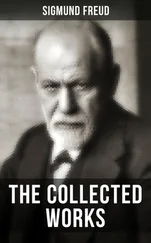There were bars before some of the cells (in this scene built up purely from our own intuitive imagination), yet these cages sometimes presented scenes as from a play. Caesar strutted there. There Hannibal — Hannibal? Why Hannibal? As a boy he himself had worshipped Hannibal, imagined himself in the role of world-conqueror. But every boy at some time or another strutted with imaginary sword and armor. Every boy? This man, this Caesar, who flung his toga over his arm with a not altogether unauthentic gesture, might simply be living out some childish fantasy. If he could examine the patient in suitable surroundings — but the patient shouted et tu Brute and became violent at any suggestion of approach or friendly contact. If he could have interviewed this Caesar a few years back — he had been a man of some prominence at one time — he might have been able to worm out of him the secret of his Caesar mania. The mind was clouded now but there was no report in this case of actual tissue decay or the usual physical symptoms that end inevitably in madness. Caesar? Hannibal? These were outstanding recognizable historical personages. But were these the entities that caused this — fixation was a word not yet coined in this connection. This man was acting a part, Caesar. Caesar? He himself, as a child, enacted a similar role, Hannibal. But was it Hannibal? Was it Caesar? Was it —? Well, yes — it might be — how odd. Yes — it could be! It might be this man’s father now that he was impersonating — wasn’t the father the Caesar, the conqueror, the symbol of power, the Czar, Kaiser, the King in the child’s kingdom — admittedly small but to the child of vast worldwide importance, the world to him, his home. The whole world for a child is its home, its father, mother, brothers, sisters, and so on — its school later and friends from other “kingdoms.” Why, yes — how clear it all was — this Caesar now? How had it come about? There must be something behind this collapse not noted in the record of the patient’s physical and even mental conditions and symptoms. There must be something else behind many of the cases here and at the Salpêtrière — not all of them — but some of them — and other cases. . There must be something behind the whole build-up of present-day medical science — there must be something further on or deeper down — there must be something that would reveal the secrets of these states of glorified personality and other states and conditions — there must be something. . Why, Hannibal! There is Caesar behind bars — here is Hannibal, here am I, Sigmund Freud, watching Caesar behind bars. But it was Caesar who was conqueror — was he? — I came, I saw, I conquered — yes, I will conquer. I will. I, Hannibal — not Caesar. I, the despised Carthaginian, I, the enemy of Rome. I, Hannibal. So you see, I, Sigmund Freud, myself standing here, a favorite and gifted, admit it, student of Dr. Charcot, in no way to all appearances deranged or essentially peculiar, true to my own orbit — true to my own orbit? True to my own orbit, my childhood fantasies of Hannibal, my identification with Hannibal, the Carthaginian (Jew, not Roman) — I, Sigmund Freud, understand this Caesar. I, Hannibal!
And Caesar’s wife too (if we may continue our build-up of this purely imaginative sequence of cause and effect), there is Caesar’s wife to be considered. This particular lady was not even an out-patient of this particular institution, but she might soon be. She was found lingering in the waiting room, after the others had left. She was always demanding interviews with the doctors and the superintendent himself, getting in everyone’s way. It was becoming quite a feature with the institution, the superintendent had left special orders that he was not to be disturbed, he had been compelled to deny her the last private interview she demanded; the famous specialist was overworked, there was too much to be done here, everywhere, trying personal entanglements must be avoided at all costs. Personal entanglements? But this good lady would be the first to decry any such shadow of design on her part. But wasn’t that her trouble? She had been devoted to her husband, the separation was affecting her, she herself seemed on the verge of a serious breakdown. That was only natural, wasn’t it, under the tragic circumstances? But this sort of suppressed neurotic symptom — symptom? This sort of separation between two people long married and devoted might have serious repercussions, actually throw the whole nervous system out of gear, unbalance the delicately adjusted mechanism of the mind itself. Her worry had worn on her — poor woman — and no wonder. Someone should look after her. But she was not even an out-patient, it wasn’t their business to probe into the personal affairs of the patients’ wives and families. Affairs? Caesar’s wife? Yes, she was Caesar’s wife, obviously above suspicion, a conventional woman yet a woman of the world. Such things had happened before. Where was his thought taking him? There had been other cases here — that girl whose happiness at the news of her husband’s possible return from Algiers after a long absence had so improved her condition that Dr. Charcot, consulted in this instance, had himself suggested her leaving the hospital for a time. Her health, it was reported, had improved after her return to her husband, but if her husband went away again would her symptoms return?
This obviously is not an historical account of the preliminary steps that led to the establishment of a new branch of psychological research and a new form of healing called psychoanalysis. The actual facts are accessible to any serious student of Professor Freud’s work. But it seems to me it might have been through some such process of inner reasoning that the theme opened. The theme? I write the word and wonder why I write it. It seemed to me to suggest music — yes, musical terms do seem relevant to the curious and original process of the Professor’s intuitive reasoning that led up to, developed, amplified, simplified the first astonishing findings of the young Viennese doctor whom the diagnoses of his elders and betters had not always satisfied. It was not only that the young Sigmund Freud was astute, methodical, conscientious, subtle, clever, original — though he was all these. It was not only that he came from a race that had venerated learning and (like the Arabs) had preserved, in spite of repeated persecutions, a singular feeling for medicine, along with mathematics and certain forms of abstract philosophy and poetry, at a time when (as now) the liberal and applied arts seemed overshadowed with the black wing of man’s growing power of destruction and threat of racial separateness. He stood alone and we may imagine that he was singularly proud, though of so genial a nature, so courteous a manner, and so delicate a wit; he was easy to get on with, he could discourse delightfully on any subject, at any time, with anybody. But what was it about him? His appearance, his habits, his way of life were conventional enough; even his worst enemies could find nothing to criticize about his private life; he was strictly correct, almost orthodox, you might say.
The point was that for all his amazing originality, he was drawing from a source so deep in human consciousness that the outer rock or shale, the accumulation of hundreds or thousands of years of casual, slack, or even wrong or evil thinking, had all but sealed up the original spring or well-head. He called it striking oil, but others — long ago — had dipped into that same spring. They called it “a well of living water” in the old days, or simply the “still waters.” The Professor spoke of this source of inspiration in terms of oil. It focused the abstraction, made it concrete, a modern business symbol. Although it was obvious that he was speaking of a vague, vast abstraction, he used a common, almost a commonplace, symbol for it. He used the idiom or slang of the counting-house, of Wall Street, a businessman’s concrete definite image for a successful run of luck or hope of success in the if-we-should-strike-oil or old-so-and-so-has-struck-oil-again manner. “I struck oil but there is enough left for fifty, for one hundred years or more.” It is difficult to imagine the Professor saying solemnly, “I drew by right of inheritance from the great source of inspiration of Israel and the Psalmist — Jeremiah, some might call me. I stumbled on a well of living water, the river of life. It ran muddy or bright. It was blocked by fallen logs, some petrified — and an accumulation of decaying leaves and branches. I saw the course of the river and how it ran, and I, personally, cleared away a bit of rubbish, so that at least a small section of the river should run clear. There is a lot yet to be done — for a hundred years or more — so that all men, all nations, may gather together, understanding in the end. . ” But no, that was not the Professor’s way of talking. “I struck oil” suggests business enterprise. We visualize stark uprights and skeleton-like steel cages, like unfinished Eiffel Towers. And there are many, I have reason to know, who think of the whole method or system of psychoanalysis in some such terms, a cage, some mechanical construction set up in an arid desert, to trap the unwary, and if there is “oil” to be inferred, the “oil” goes to someone else; there are astute doctors who “squeeze you dry” with their exorbitant fees for prolonged and expensive treatments. A tiresome subject at best — have nothing to do with it — it’s worn out, dated; true, it was fashionable enough among the young intellectuals after the First World War but they turned out a dreary lot and who, after all, has heard of any of them since?
Читать дальше











